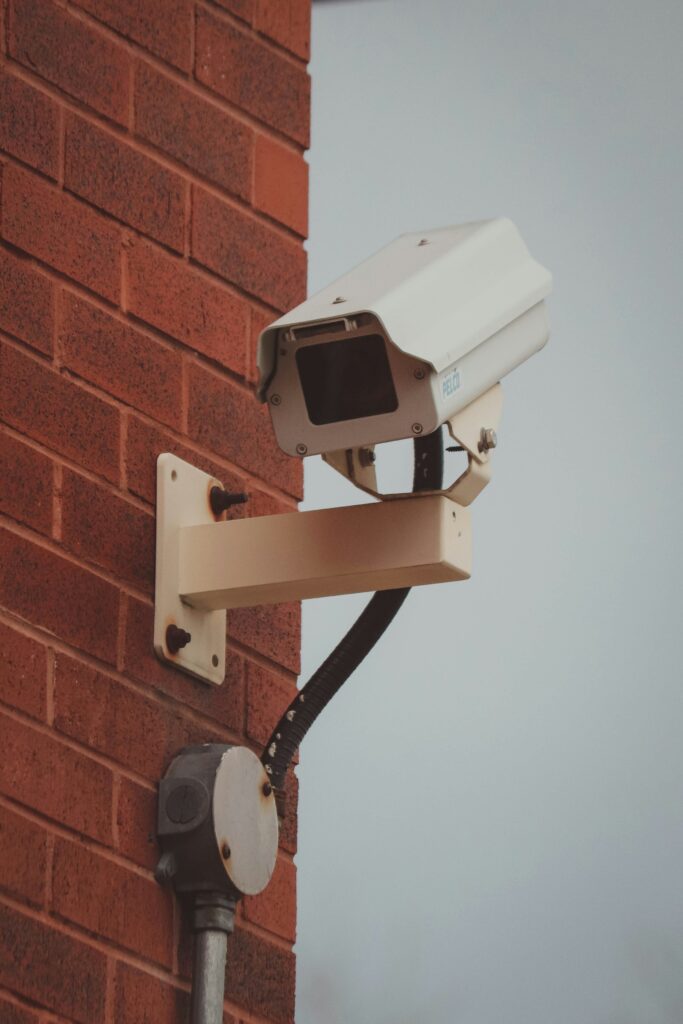The new NRW Surveillance Act Data protection is causing an uproar. Data protection officers are concerned about the planned changes. The draft bill provides for extended powers for the police and authorities. This raises questions about the protection of Privacy on.
Experts warn of possible interference with the Civil rights. The General Data Protection Regulation could be undermined by the new law. The topic was the subject of heated debate in the German Bundestag. The parties' speeches showed clear differences in their assessment of the law.
Statistics prove the explosive nature of the topic. 57% of the requests to speak raised concerns about the Privacy expressed. The Pirate Party played an important role in the debate. It called for more transparency and asked critical questions about the constitutionality of the law.
Important findings
- The new NRW surveillance law is being criticized
- Data protection officers express concerns
- Civil rights could be restricted
- Fierce debates in the Bundestag
- Pirate Party demands more transparency
Fundamentals of the new NRW Surveillance Act Data protection
The new surveillance law in North Rhine-Westphalia is causing debate. It is based on the Police Duties Act and provides for an expansion of surveillance powers. Citizens are concerned about possible restrictions to their rights.
Legal framework for monitoring
The Police Duties Act forms the basis for the new regulations. It defines the powers of the police with regard to surveillance. The Rule of law sets clear limits. A study shows that 74% of respondents want more control over their data.
Key points of the draft law
The draft provides for a strengthening of the Video surveillance before. The Data collection is to be extended. The Federal Constitutional Court only allows such measures in cases of concrete danger. The police are to be given new powers in order to work more effectively.
| Measure | Current status | Planned change |
|---|---|---|
| Video surveillance | Limited to certain locations | Expansion to other public areas |
| Data collection | Only in case of concrete suspicion | Extension of powers |
| Online searches | Not allowed | Introduction under certain conditions |
Effects on civil rights
Critics see the Civil rights in danger. They fear an encroachment on the Privacy. The Rule of law must maintain a balance between security and freedom. A survey showed that 84% of respondents are concerned about data collection.
The debate surrounding the new law shows the challenges of the digital age. The aim is to ensure security without compromising the Basic rights to be violated. Legislators are faced with the task of finding a balanced approach.
Critical opinion of the data protection officer
The data protection commissioners in Germany are alarmed by the planned NRW surveillance law. They are expressing serious concerns about its compatibility with the General Data Protection Regulation (GDPR) and warn of a possible erosion of the right to privacy. Informational self-determination.
In a joint statement, the data protection experts emphasize the need for a thorough review of the draft law. They refer to the ruling of the European Court of Justice of June 22, 2022, which underlines the importance of uniform data protection standards in the EU.
"The new law could undermine the principles of GDPR and undermine the Privacy of the citizens."
The data protection officers' criticism is directed in particular at the following points:
- Inadequate protection mechanisms for personal data
- Lack of transparency in Data collection and processing
- Lack of proportionality of the planned monitoring measures
In view of the fact that the federal states will have to offer around 575 services digitally by 2022, the experts emphasize the importance of this, Privacy and digitalization. They are calling for the draft law to be revised in order to Informational self-determination of the citizens and at the same time meet the requirements of modern administration.
Effects on digital privacy
The new NRW Surveillance Act brings significant changes for the Digital privacy of citizens. The expansion of surveillance powers raises questions about the protection digital freedoms on.
Monitoring digital communication
The investigating authorities are given far-reaching possibilities for surveillance digital communication. Since 2017, they have been allowed to penetrate citizens' systems in tens of thousands of cases every year in North Rhine-Westphalia. This measure deeply encroaches on privacy and could affect trust in digital communication channels.
Storage of personal data
One critical aspect is data retention. Telecommunications companies must store connection and location data for four to ten weeks without concrete suspicion. This practice jeopardizes privacy and represents a massive encroachment on digital freedoms.
Access by authorities
Access by authorities has been significantly expanded. Every year, millions of data records are passed on to investigating authorities as part of radio cell searches. In addition, an amendment to the Code of Criminal Procedure enables more comprehensive state online access in normal criminal proceedings.
| Monitoring measure | Impact on privacy |
|---|---|
| State Trojans | Access to private communication |
| Data retention | Long-term storage of personal data |
| Radio cell queries | Mass recording of transaction data |
These developments show the extent to which the balance between security and privacy is being challenged in the digital space. It remains to be seen how these measures will affect the digital freedoms of citizens become.
Technical implementation of the monitoring measures

The technical implementation of surveillance measures in NRW includes the expansion of video surveillance systems and new methods of data collection. Experts are intensively discussing the challenges and security risks involved in storing and processing the collected data.
The Video surveillance is being increased in public spaces. Modern cameras with high-resolution image quality and intelligent analysis software are being used. These systems can recognize faces and analyse movement patterns.
Digital communication channels play a central role in data collection. Internet providers must store connection data for up to seven months. This also applies to e-mail services and telephony. The Federal Network Agency can punish violations with fines of up to 10,000 euros.
Data retention requires the storage of six types of data for a maximum of seven months by providers of telephony, e-mail and Internet access services.
Critics warn of the impact on privacy. A survey by PEN America shows that 28% of the authors surveyed avoid social media and 24% would not discuss certain topics on the phone or by email.
The technical implementation of these measures requires considerable investment in hardware and software. At the same time, strict security standards must be adhered to in order to protect the collected data from unauthorized access.
Comparison with other federal states
The debate about the new Police Duties Act in North Rhine-Westphalia raises the question of how other federal states deal with the issue. Internal security how to deal with them. A look at the legislation shows clear differences.
Differences in legislation
While some states rely on strict data protection regulations, others have expanded the powers of the police. Bavaria, for example, passed a controversial Police Duties Act in 2018 that gives the police far-reaching surveillance powers.
| Federal state | Police powers | Privacy |
|---|---|---|
| Bavaria | Very far-reaching | Less strict |
| Baden-Württemberg | Moderate | Balanced |
| Hamburg | Limited | Very strict |
Best practices
Some federal states have developed innovative approaches to maintain a balance between internal security and civil rights. In Hamburg, for example, there is an independent body that monitors the implementation of surveillance measures.
The analysis of best practices from other federal states could provide valuable impetus for the further development of the Police Duties Act in NRW. A balanced approach that takes into account both the Internal security as well as the Privacy appears to be the key to success.
Position of the civil rights organizations
Civil rights organizations are critical of the new NRW surveillance law. They see it as a potential danger for the Civil rights and data protection.
Main points of criticism
The organizations express concerns about the possible restriction of fundamental rights. They warn of the emergence of a surveillance state in which citizens' privacy is no longer protected.

An example of similar developments can be found in the Netherlands. A law was passed there that gives the authorities extensive surveillance options. This has met with fierce resistance:
- Systematic interception of online communication
- Three-year storage of the data obtained
- More than a dozen organizations announce lawsuits
Proposed alternatives
Civil rights organizations are calling for a more balanced approach between security and freedom. They propose this:
- Stronger control of data use by authorities
- Transparency in data collection and storage
- Time limit for data storage
- Better protection of sensitive personal information
The German Bar Association is calling on the German government to reject EU plans for total surveillance. This shows that the fight for civil rights and data protection is being waged at various levels.
European data protection standards in context
The new NRW Surveillance Act is in conflict with European data protection standards. The General Data Protection Regulation sets strict standards for the handling of personal data. Experts intensively discuss possible conflicts between the state law and EU directives.
The GDPR provides for severe penalties in the event of violations. Fines can amount to up to 20 million euros or 4 percent of annual global turnover. The European Data Protection Board recently adopted uniform guidelines for setting fines.
A recent example shows how explosive this is: Meta received a record fine of 1.2 billion euros for GDPR violations in May 2023. This illustrates the seriousness with which EU authorities pursue data protection violations.
The compatibility of the NRW law with EU requirements must be carefully examined. Data protection is not an obstacle, but a fundamental right.
Despite new agreements such as the EU-US data protection framework, many questions remain unanswered. Data exporters must continue to carefully examine which transfer instruments they use. The protection of personal data remains a key challenge for legislators and companies.
Legal concerns and constitutionality
The new NRW Surveillance Act raises serious questions about its compatibility with the Constitutional law on. Legal experts emphasize the need for a thorough examination to ensure that the Basic rights of citizens are safeguarded. Experience from other countries, such as the Netherlands, shows the explosive nature of such laws.
Constitutional review
The Federal Constitutional Court has set clear guidelines for surveillance laws in previous rulings. The protection of privacy and the proportionality of the measures are particularly important. The court emphasizes that far-reaching interventions in highly confidential situations require special protective regulations.
Possible legal action
Civil rights organizations are considering legal action against the new law. They consider the long data retention period to be disproportionate. Similar laws, such as data retention, have been struck down in the past by the Federal Constitutional Court and the European Court of Justice declared invalid. These precedents could point the way for possible legal proceedings.
